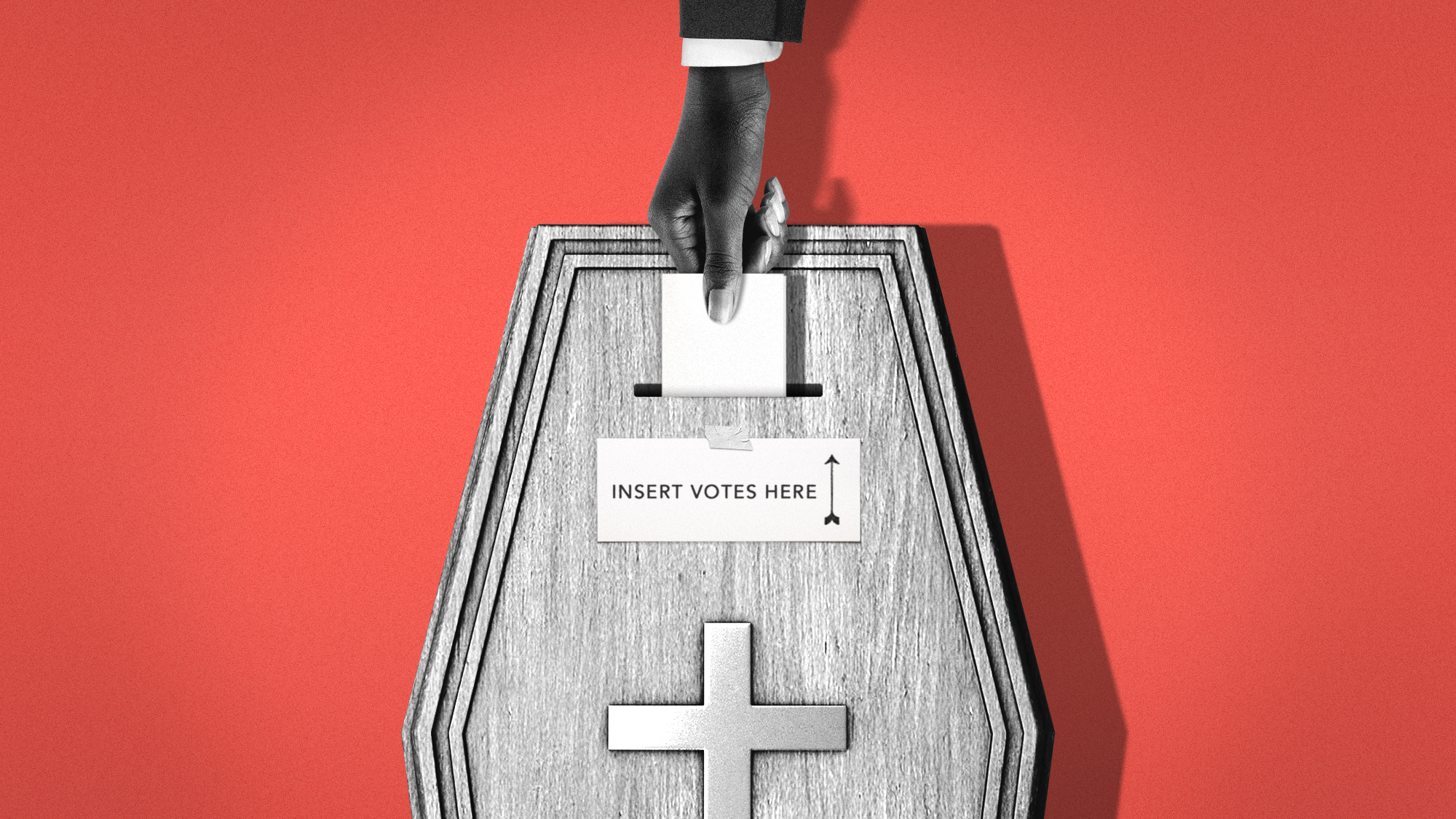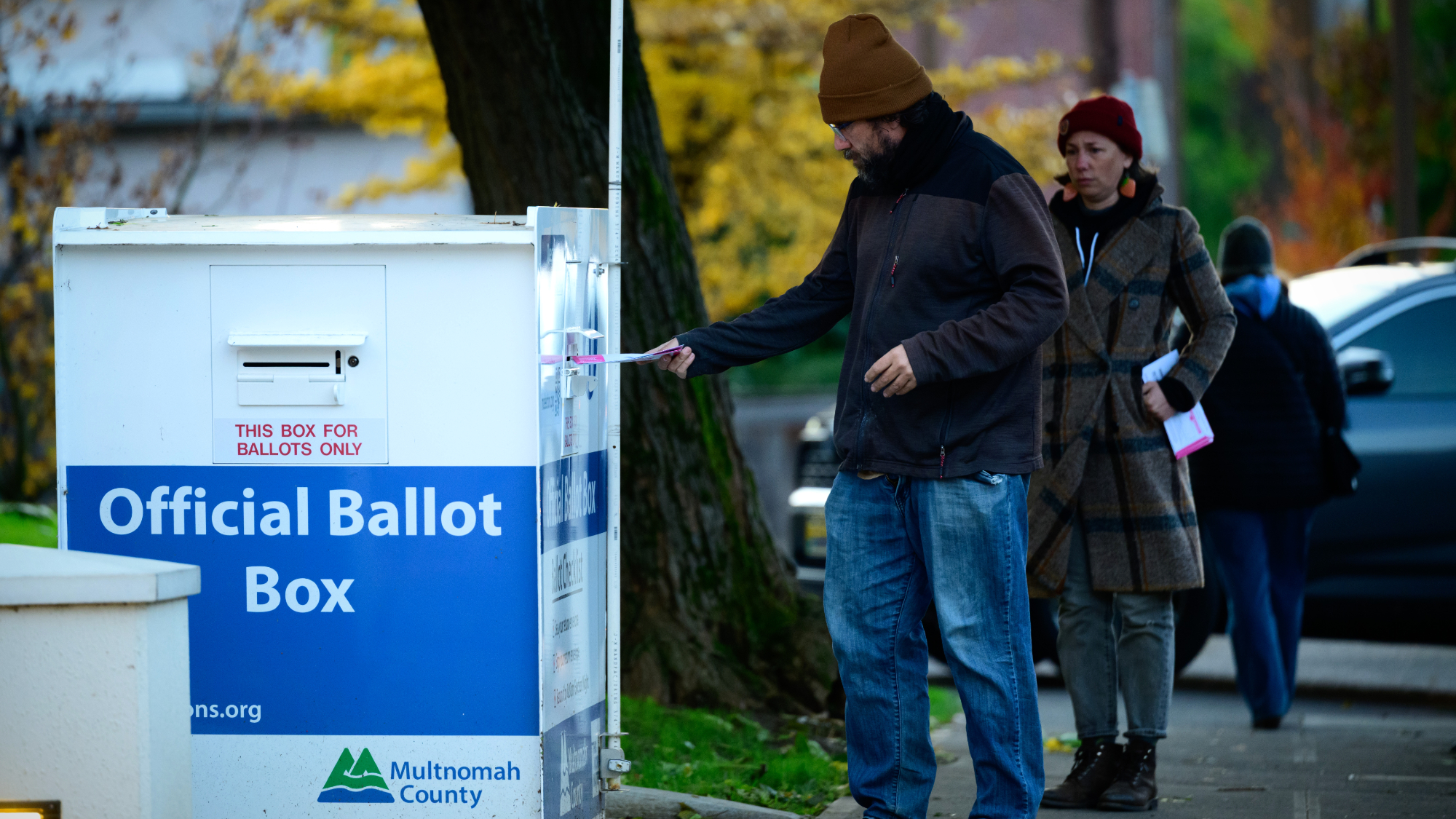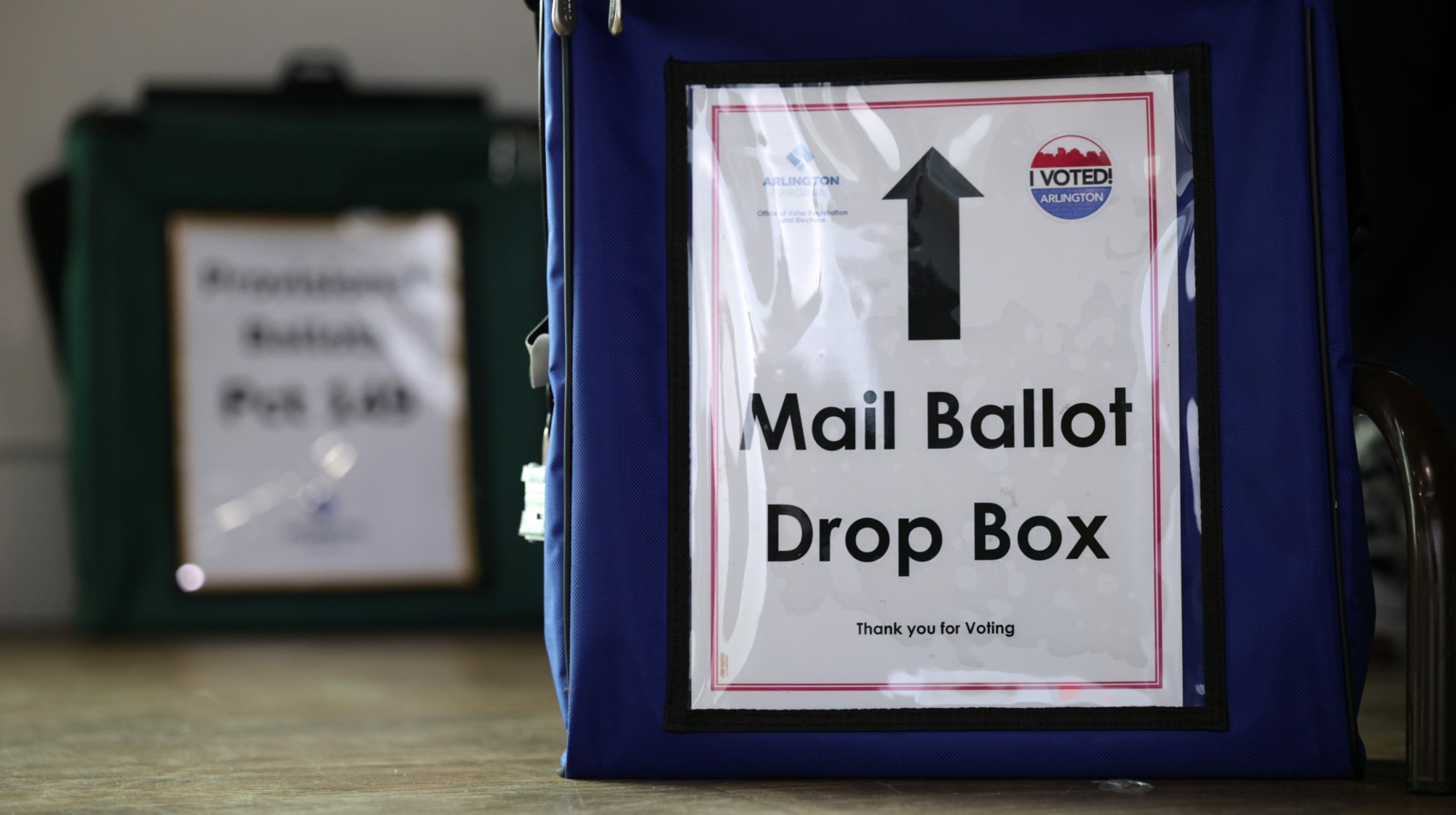Is the Voting Rights Act nearly dead?
An appeals court 'drastically weakens' the landmark law. What happens next is up to the Supreme Court.


A free daily email with the biggest news stories of the day – and the best features from TheWeek.com
You are now subscribed
Your newsletter sign-up was successful
The Voting Rights Act is a landmark law of the Civil Rights Era — a key part of Martin Luther King Jr.'s legacy — and it's in big trouble. Again. A federal appeals court on Monday voted to "drastically weaken" the law, The New York Times reported, saying that only the federal government can bring challenges to racially discriminatory state and local election rules under the act, a decision that would "effectively bar private citizens and civil rights groups" from filing lawsuits to protect voting rights.
Why is that a big deal? Because, as election law attorney Marc E. Elias explained on X, there have been 182 successful cases brought under the VRA over the past four decades — and only 15 of those were brought by the Department of Justice. Monday's ruling is "quite a seachange in the way that everyone — Congress, the courts, plaintiffs, and even defendants — have thought" about how the law would be enforced, ACLU's Sophia Lin Lakin told Bloomberg Law. For the appellate judges, though, the reason for their ruling was simple: "The Voting Rights Act lists only one plaintiff who can enforce [the provision in question]: the Attorney General," Judge David R. Stras wrote for the Eighth Circuit Court of Appeals in St. Louis.
That decision "could end voting rights," Adam Serwer argued at The Atlantic. The law, passed in 1965, "made America a true democracy for all of its citizens." Throughout its history, private citizens have used the law to challenge racial discrimination at the polls. Monday's ruling "would effectively outlaw most efforts to ensure that Americans are not denied the right to vote on the basis of race."
The Week
Escape your echo chamber. Get the facts behind the news, plus analysis from multiple perspectives.

Sign up for The Week's Free Newsletters
From our morning news briefing to a weekly Good News Newsletter, get the best of The Week delivered directly to your inbox.
From our morning news briefing to a weekly Good News Newsletter, get the best of The Week delivered directly to your inbox.
What the commentators said
"It's hard to overstate how important and detrimental this decision would be if allowed to stand," Rick Hasen wrote at Election Law Blog. The "vast majority" of claims to enforce the racial discrimination provisions of the Voting Rights Act are brought by private plaintiffs, because the Department of Justice has "limited resources." The attorney general probably won't be able to fill the gap. "If minority voters are going to continue to elect representatives of their choice, they are going to need private attorneys to bring those suits."
But the decision is actually quite narrow, Margot Cleveland countered at The Federalist, "solely a question of statutory interpretation." Yes, the law is "a go-to tool to strike down state laws regulating voting and congressional maps." But courts had mostly "sidestepped" the question of who gets to sue, and simply assumed that private groups and individuals have standing. That's not what the law says. "While Congress could have authorized private individuals to sue, it had not."
Maybe they should. "When the government discriminates against people, they should have a right to fight back in court," Paul Smith argued for the Campaign Legal Center. Private lawsuits, the center said, "are critical to ensuring that voters of color are able to secure fair maps and make their voices heard."
What next?
Monday's ruling "seems certain to instigate a new voting-rights showdown as the nation heads into a presidential election cycle," Joan Biskupic wrote at CNN. It's also a significant example "of former President Donald Trump's influence over the federal judiciary." Judge David R. Stras was one of Trump's first appellate court appointees, and issued a ruling that Justices Clarence Thomas and Neil Gorsuch — Trump's first higher court nominee — seemed to invite in their previous opinions in elections cases.
A free daily email with the biggest news stories of the day – and the best features from TheWeek.com
Those justices will almost certainly get a chance to weigh in. Monday's ruling "tees up" a likely fight at the Supreme Court, The Washington Examiner reported. And it could have a big impact on the 2024 presidential election. Forbes noted that for now the ruling only applies to eight states covered by the Eighth Circuit. If SCOTUS hears the case this term, though, it could become "significantly harder to challenge voting rules nationwide" in the runup to the likely Joe Biden-Donald Trump rematch.
Joel Mathis is a writer with 30 years of newspaper and online journalism experience. His work also regularly appears in National Geographic and The Kansas City Star. His awards include best online commentary at the Online News Association and (twice) at the City and Regional Magazine Association.
-
 The Olympic timekeepers keeping the Games on track
The Olympic timekeepers keeping the Games on trackUnder the Radar Swiss watchmaking giant Omega has been at the finish line of every Olympic Games for nearly 100 years
-
 Will increasing tensions with Iran boil over into war?
Will increasing tensions with Iran boil over into war?Today’s Big Question President Donald Trump has recently been threatening the country
-
 Corruption: The spy sheikh and the president
Corruption: The spy sheikh and the presidentFeature Trump is at the center of another scandal
-
 Kurt Olsen: Trump’s ‘Stop the Steal’ lawyer playing a major White House role
Kurt Olsen: Trump’s ‘Stop the Steal’ lawyer playing a major White House roleIn the Spotlight Olsen reportedly has access to significant US intelligence
-
 Japan’s Takaichi cements power with snap election win
Japan’s Takaichi cements power with snap election winSpeed Read President Donald Trump congratulated the conservative prime minister
-
 ‘The West needs people’
‘The West needs people’Instant Opinion Opinion, comment and editorials of the day
-
 Gabbard faces questions on vote raid, secret complaint
Gabbard faces questions on vote raid, secret complaintSpeed Read This comes as Trump has pushed Republicans to ‘take over’ voting
-
 Judge tosses DOJ petition for Oregon voter data
Judge tosses DOJ petition for Oregon voter dataSpeed Read The decision was made following a letter sent by the DOJ to Minnesota
-
 How realistic is the Democratic plan to retake the Senate this year?
How realistic is the Democratic plan to retake the Senate this year?TODAY’S BIG QUESTION Schumer is growing bullish on his party’s odds in November — is it typical partisan optimism, or something more?
-
 Supreme Court to decide on mail-in ballot limits
Supreme Court to decide on mail-in ballot limitsSpeed Read The court will determine whether states can count mail-in ballots received after Election Day
-
 Should TV adverts reflect the nation?
Should TV adverts reflect the nation?Talking Point Reform MP Sarah Pochin’s controversial comments on black and Asian actors in adverts expose a real divide on race and representation
